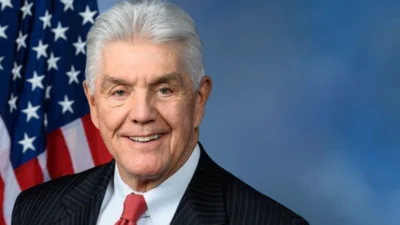The House Appropriations Committee has approved the Fiscal Year 2025 State, Foreign Operations, and Related Programs Appropriations Act with a vote of 31 to 26. This legislation proposes significant funding reductions compared to both the President’s Budget and the Fiscal Year 2024 enacted levels.
State and Foreign Operations Subcommittee Chairman Mario Diaz-Balart (R-FL) stated, “As Chairman of the Subcommittee that funds our national security and foreign policy priorities, I am pleased that our Fiscal Year 2025 proposed funding legislation was approved by the full committee. We achieved a 19% reduction from the President’s Budget, and an 11% cut from Fiscal Year 2024 enacted levels. This legislation reaffirms American leadership, supports key allies such as Israel and Taiwan, counters adversaries including Communist China and the terrorists of Cuba, Iran, Hamas, and Hezbollah, and promotes global freedom and security.”
Chairman Tom Cole (R-OK) added, “Our actions today uphold the United States as a world leader for freedom, prosperity, and peace. Each priority ensures Americans are safer at home and abroad and sends a clear message that we will protect our interests. It confronts authoritarian regimes... this bill reasserts deterrence and maximum pressure against bad actors.”
The appropriations act allocates $51.713 billion in discretionary spending—$7.6 billion below FY24 levels and $12.26 billion below the President’s request.
Key allocations include:
- $3.3 billion in Foreign Military Financing for Israel.
- $2.1 billion for U.S. national security interests in the Indo-Pacific.
- $500 million in Foreign Military Financing for Taiwan.
- Full funding of $400 million for the Countering PRC Influence Fund.
The bill also includes measures to combat fentanyl trafficking into the U.S., prohibits funds encouraging migration towards the U.S.-Mexico border, maintains pro-life protections across health funds in its jurisdiction, eliminates funding for several UN programs deemed unnecessary or controversial by proponents of the bill, restricts climate agenda financing through multilateral development banks like the World Bank.
Amendments adopted during markup included technical bipartisan changes to improve clarity on various provisions within the bill.
A summary of amendments offered by Democrats but refused by Republicans highlighted attempts to allocate funds toward initiatives such as mass-migration management at borders or support for organizations like WHO which were ultimately not incorporated into this act.
Further details on amendments adopted include prohibitions on diversity initiatives perceived as polarizing or unnecessary religious discrimination protections among others.






